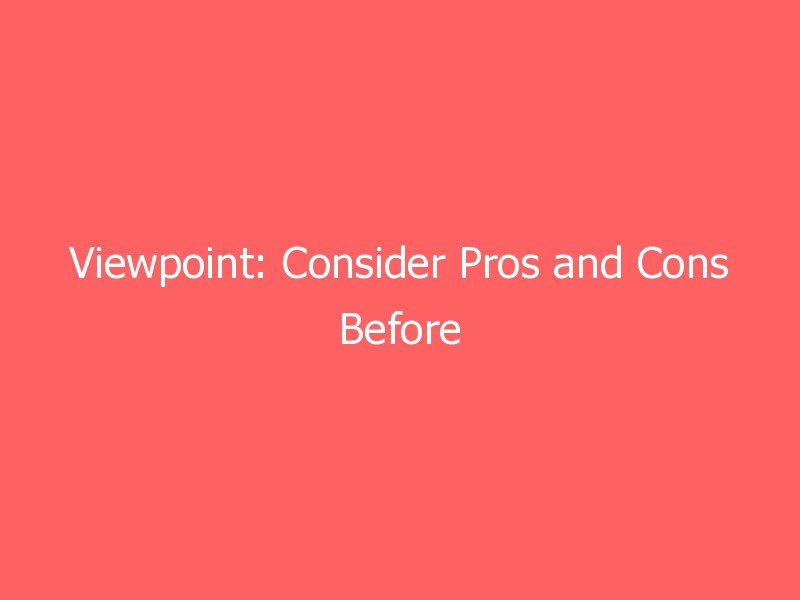Viewpoint: Consider Pros and Cons Before Requiring Pronouns in Signature Blocks
In certain social, professional and academic circles, it is becoming commonplace for individuals to specify which pronouns they prefer others use when referencing them. I, for example, identify as a man, so my signature block could say: Hugh F. Murray III, He/Him. Some organizations have instituted, or are contemplating instituting, uniform standards for such specifications. There are advantages and disadvantages to requiring employees to specify in their signature blocks which pronouns they prefer, and organizations should carefully consider the issues before making a decision.
Advantages to Gender Identification
In a diverse and globalized world, there are advantages to this system of gender identification.
The first advantage is practical and based on increasing cultural diversity in the workplace. People of different cultures and backgrounds are interacting with each other more often. Within cultures and subcultures, individuals can generally discern gender identity from an individual’s name. In the largely suburban Boston community in which I grew up, Michelle, Sarah, Maria, Laura and Mary were all women’s names, while James, Michael, Frank, Joe and Peter were all men’s names. Someone raised in India might easily distinguish the gender of Aarav, Reyansh, Aditya, Brinda, Chhaya and Dhriti, but a decade ago I could not, and I still would have difficulty.
In a world where individuals from different cultures increasingly interact, people will be communicating with others whose gender is not immediately and universally discernable by their name. An explicit gender identifier can avoid the mistake of addressing a woman as “Mr. Jones” or a man as “Ms. Patel.”
The second advantage concerns creating an open and accepting workplace for individuals who do not fit traditional notions of gender. Two million people in the United States identify as transgender or nonbinary, according to Gallup. Putting forward a pronoun preference in a biography or signature block can let people know how the individual identifies and avoid confusion.
For cisgender individuals—those whose perception of their gender aligns with their birth sex—putting a pronoun preference can occasionally avoid awkward mistakes as well as create a sense of solidarity with individuals who are not cisgender.
Drawbacks
There are some drawbacks to the uniform use of pronoun identifiers in signature blocks and biographies.
Some individuals may not feel comfortable publicly identifying their gender.
In addition, the use of pronoun identifiers perpetuates the idea that, in a professional setting, one’s gender is one of the most important things to know about an individual.
Finally, the practice has become somewhat political.
Different Responses
Organizations that examine this issue will determine whether, as an organization, employees will:
Be required to specify pronoun preferences.Be allowed the option of specifying pronoun preferences.Be prohibited from identifying pronoun preferences.
There may be good reasons, that differ across industries, for any of these three responses.
From a legal point of view, there is little real risk in any of the three approaches. Many states prohibit discrimination on the basis of gender identity, and the U.S. Supreme Court held in 2020 in Bostock v. Clayton County that transgender discrimination was a form of sex discrimination prohibited by Title VII of the Civil Rights Act of 1964. Under the logic of that case, transgender harassment is likely also illegal as a form of sex discrimination.
While some individuals may feel that mandating, allowing or prohibiting pronoun designation is unfair or improper, it seems unlikely that any of these three approaches would give rise to legal consequences, particularly if the organization has a well-thought-out rationale for its approach and reasonably accommodates religious beliefs.
An organization’s interest in a uniform look and feel for its outward-facing communication style may justify either mandating or prohibiting pronoun designation. If employees feel strongly that they wish to include such a designation where it is prohibited or resist such a designation where it is mandated, an employer should discuss the issue with the individual and determine whether to make an exception to its policy.
[Want to learn more? Join us at the SHRM Annual Conference & Expo 2021, taking place Sept. 9-12 in Las Vegas and virtually.]
Free Speech in Government Settings
That said—at least one federal appeals court has held that an employee may have a right to a religious accommodation in the refusal to recognize the pronoun and honorific preferences of another individual. In Meriwether v. Hartop, decided March 26, 2021, the 6th U.S. Circuit Court of Appeals agreed with a public university professor who stated that the university violated his First Amendment free speech rights by disciplining him when he refused, because of his Christian beliefs, to use the pronouns and honorifics preferred by one of his transgender students. The court cited the “cardinal constitutional command” that “the government may not compel affirmance of a belief with which the speaker disagrees.”
It is unclear how this case may apply to nonpublic, nonuniversity settings. Nonetheless, employers should proceed with caution in balancing the desires of individuals to be addressed by the pronouns and honorifics that match their gender and the claims of those with whom they interact that their religion or other beliefs dictate otherwise.
Hugh F. Murray III is an attorney with McCarter & English in Hartford, Conn.
Originally found on SHRM Read More








